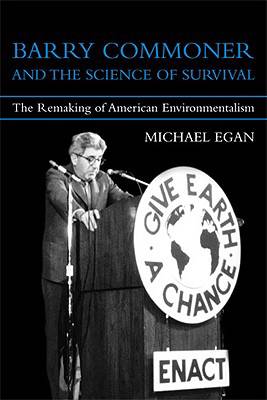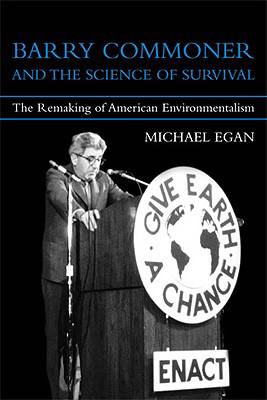
- Retrait gratuit dans votre magasin Club
- 7.000.000 titres dans notre catalogue
- Payer en toute sécurité
- Toujours un magasin près de chez vous
- Retrait gratuit dans votre magasin Club
- 7.000.0000 titres dans notre catalogue
- Payer en toute sécurité
- Toujours un magasin près de chez vous
30,95 €
+ 61 points
Description
Chronicles the activist career of Barry Commoner, one of the most influential American environmental thinkers, and his role in recasting the environmental movement after World War II.For over half a century, the biologist Barry Commoner has been one of the most prominent and charismatic defenders of the American environment, appearing on the cover of Time magazine in 1970 as the standard-bearer of "the emerging science of survival." In Barry Commoner and the Science of Survival, Michael Egan examines Commoner's social and scientific activism and charts an important shift in American environmental values since World War II.Throughout his career, Commoner believed that scientists had a social responsibility, and that one of their most important obligations was to provide citizens with accessible scientific information so they could be included in public debates that concerned them. Egan shows how Commoner moved naturally from calling attention to the hazards of nuclear fallout to raising public awareness of the environmental dangers posed by the petrochemical industry. He argues that Commoner's belief in the importance of dissent, the dissemination of scientific information, and the need for citizen empowerment were critical planks in the remaking of American environmentalism. Commoner's activist career can be defined as an attempt to weave together a larger vision of social justice. Since the 1960s, he has called attention to parallels between the environmental, civil rights, labor, and peace movements, and connected environmental decline with poverty, injustice, exploitation, and war, arguing that the root cause of environmental problems was the American economic system and its manifestations. He was instrumental in pointing out that there was a direct association between socioeconomic standing and exposure to environmental pollutants and that economics, not social responsibility, was guiding technological decision making. Egan argues that careful study of Commoner's career could help reinvigorate the contemporary environmental movement at a point when the environmental stakes have never been so high.
Spécifications
Parties prenantes
- Auteur(s) :
- Editeur:
Contenu
- Nombre de pages :
- 283
- Langue:
- Anglais
- Collection :
Caractéristiques
- EAN:
- 9780262512473
- Date de parution :
- 01-03-09
- Format:
- Livre broché
- Format numérique:
- Trade paperback (VS)
- Dimensions :
- 152 mm x 226 mm
- Poids :
- 430 g

Les avis
Nous publions uniquement les avis qui respectent les conditions requises. Consultez nos conditions pour les avis.






